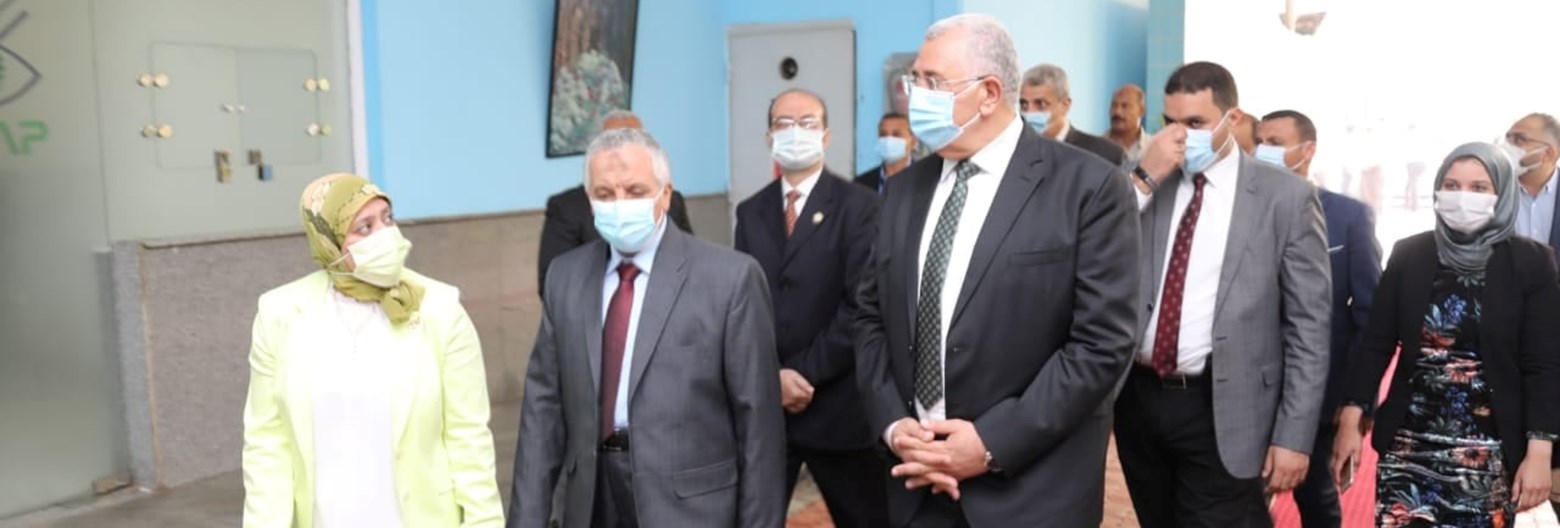Development of POPs section of the Pesticide and Heavy Component Residual Laboratory

The Minister of Agriculture will inspect the POPs section of the remaining pesticide and heavy food plant once developed
"Development at a cost of 20 million pounds and the addition of three new devices is the most recent in the world.
Mr. Al-quser, Minister of Agriculture and Land Reclamation, Persistent Organic Pollutants (POPs) Section, Residual Plant for Pesticides and Heavy Elements in Food, CAD, after completion of its development and upgrading of its efficiency in the presence of Dr. Mohamed Suleiman, Head of the Agricultural Research Centre
H.E minister commended the development of the Central Laboratory for the Analysis of Pesticide Residual and Heavy Elements in Food, noting that it contains the latest level in the Middle East and the approved reference labs, where it has been updated and supported with state-of-the-art equipment, to keep pace with global changes, to ensure food safety and the absence of residual pesticides or heavy components.
The Minister of Agriculture explained that the new machinery at the factory played a significant role in driving Egyptian agricultural exports, supporting the preservation of human health and shortening time, thus contributing to the rapid fulfilment of the demands of exporters and importers.
Currently, Egyptian agricultural exports were gaining ground in most countries of the world because of their good reputation, which had required the development of laboratories to meet export needs, praising the efforts of Egyptian researchers and farmers.
For her part, Dr. Hind Abdallah, the director of the laboratory, reviewed what had been achieved through the development, which had a total cost of about 20 million pounds, including the addition of three new devices, the newest in the world, and the first in Egypt and the Middle East.
The plant manager noted that one of the new devices was being used to analyse more than 100 new POPs compounds as well as food-sensitive substances.
The development and upgrading of the Section was aimed at identifying sources of pollution and pathogens in order to stop the depletion of State resources to health, as well as at controlling the level of pollution in food and the environment, including the response to climate change. The most important factors for climate change were pollutants.
The Director of the plant stressed that this would contribute significantly to increasing the accuracy of the analysis, reducing the time to less than half the time, and reducing the cost of the analysis, in addition to servicing imports of products of animal origin and products subject to Halal recipes, which would directly reflect the rapid termination of imported food products, as well as the servicing of exporters, which would benefit the Egyptian economy in general and consumers in particular. and reducing the amount of chemicals used to less than one third of the amount currently used, thereby reducing its impact on the environment.
The POPs Section is a representative of the Arab Republic of Egypt at the United Nations. The POPs Section is also a representative of the Arab Republic of Egypt at the United Nations. It is indicated on the official United Nations website that the Plant is their reference plant in Egypt. The Plant provides the requirements of the Sound Food Safety Authority and is also the reference plant of the Ministry of State for Environmental Affairs.